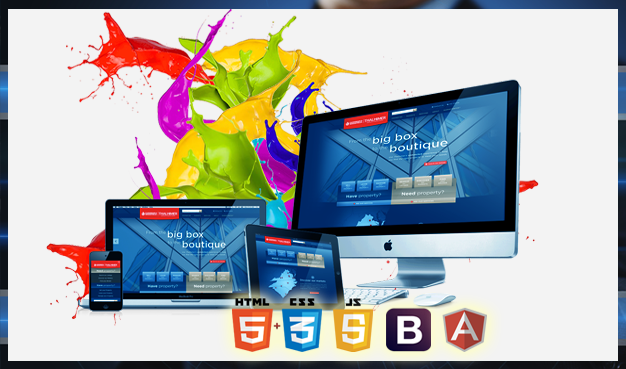- Have any questions?
- (Prasad) +91 96191 46851 | (Parag) +91 99878 20022
- support@pnpwebdesign.com
Navigating the World of Ecommerce Platforms: Your Comprehensive Guide

Navigating the World of E-Commerce Sites: Your Ultimate Guide
February 12, 2024
Unveiling the Power of Ecommerce Services: A Comprehensive Guide
February 12, 2024Navigating the World of Ecommerce Platforms: Your Comprehensive Guide

In the dynamic realm of online retail, choosing the right ecommerce platform is paramount to the success of your business. An ecommerce platform serves as the foundation for your online store, providing the tools and functionality needed to create, manage, and grow your digital storefront. In this comprehensive guide, we’ll delve into the intricacies of ecommerce platforms, exploring their significance, key features, and factors to consider when selecting the perfect platform for your ecommerce venture.
-
Understanding Ecommerce Platforms:
An ecommerce platform is a software solution that enables businesses to build and operate online stores, allowing them to showcase and sell their products or services to customers over the internet. These platforms typically offer a range of features and functionalities, including website creation tools, product management systems, payment processing capabilities, and marketing tools. By leveraging an ecommerce platform, businesses can establish a professional online presence, streamline their operations, and drive sales and revenue.

- Website Creation: Ecommerce platforms provide intuitive website builders and customizable templates that allow businesses to create visually stunning and user-friendly online stores without the need for coding or design expertise.
- Product Management: Ecommerce platforms offer robust product management systems that enable businesses to easily add, edit, and organize their product catalog, including product descriptions, images, pricing, and inventory levels.
- Payment Processing: Ecommerce platforms integrate with various payment gateways to facilitate secure and seamless payment transactions, allowing businesses to accept payments from customers using credit cards, digital wallets, and other payment methods.
- Marketing Tools: Ecommerce platforms offer a suite of marketing tools and features, such as email marketing, social media integration, and search engine optimization (SEO), to help businesses attract, engage, and retain customers and drive traffic to their online stores.
-
Key Features of Ecommerce Platforms:
When evaluating ecommerce platforms, it’s essential to consider their key features and functionalities to ensure they meet your business needs and objectives. Here are some essential features to look for in an ecommerce platform:



- User-Friendly Interface: Choose an ecommerce platform with an intuitive and easy-to-use interface that allows you to navigate and manage your online store efficiently.
- Mobile Responsiveness: Ensure that the ecommerce platform offers mobile-responsive design capabilities, allowing your online store to adapt seamlessly to different devices and screen sizes, providing an optimal shopping experience for mobile users.
- Secure Payment Processing: Select an ecommerce platform that prioritizes security and compliance, offering robust payment processing features and encryption protocols to safeguard sensitive customer data and prevent fraud.
- Scalability and Flexibility: Look for an ecommerce platform that offers scalability and flexibility to accommodate your business growth and evolving needs over time. Choose a platform that allows you to easily add new products, expand your product catalog, and integrate with third-party apps and services.
- Customer Support: Consider the level of customer support provided by the ecommerce platform, including technical assistance, troubleshooting, and online resources such as tutorials and knowledge bases.
-
Choosing the Right Ecommerce Platform:
With numerous ecommerce platforms available in the market, selecting the right one for your business can be a daunting task. To make an informed decision, consider the following factors:



- Business Needs and Objectives: Evaluate your business goals, requirements, and budget constraints to determine the type of ecommerce platform and features you need to support your online store.
- Budget and Pricing: Consider the cost of the ecommerce platform, including setup fees, subscription plans, transaction fees, and any additional charges for premium features or services.
- Customization and Integration: Choose an ecommerce platform that offers customization options and seamless integration with third-party tools and services, allowing you to tailor your online store to your specific needs and preferences.
- User Feedback and Reviews: Research ecommerce platforms online and read customer reviews and testimonials to gauge user satisfaction, reliability, and overall performance.
- Trial Period and Demo: Take advantage of free trial periods or demo versions offered by ecommerce platforms to test their features, functionality, and user experience before making a final decision.
Ecommerce Platform Conclusion:
In conclusion, selecting the right ecommerce platforms is a critical decision that can significantly impact the success of your online store. By understanding the importance of ecommerce platforms, familiarizing yourself with their key features, and carefully evaluating your options, you can make an informed decision that aligns with your business needs and objectives. Whether you’re a small startup or a large enterprise, investing in the right ecommerce platforms can provide you with the tools, resources, and support you need to thrive in the competitive world of online retail. So, take the time to research, compare, and choose wisely, and embark on your ecommerce journey with confidence and conviction!





